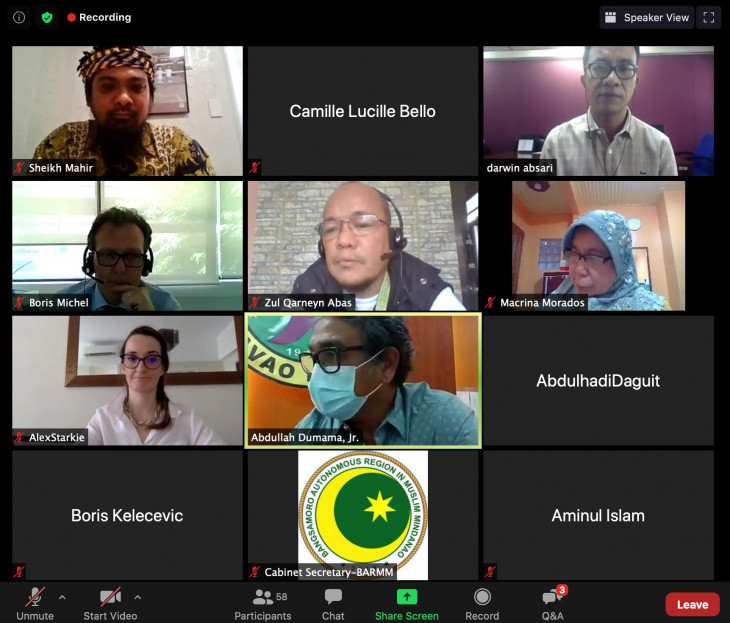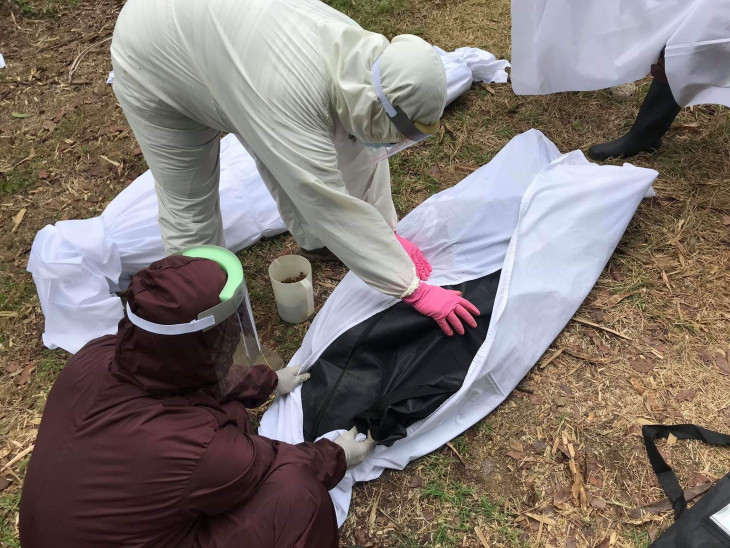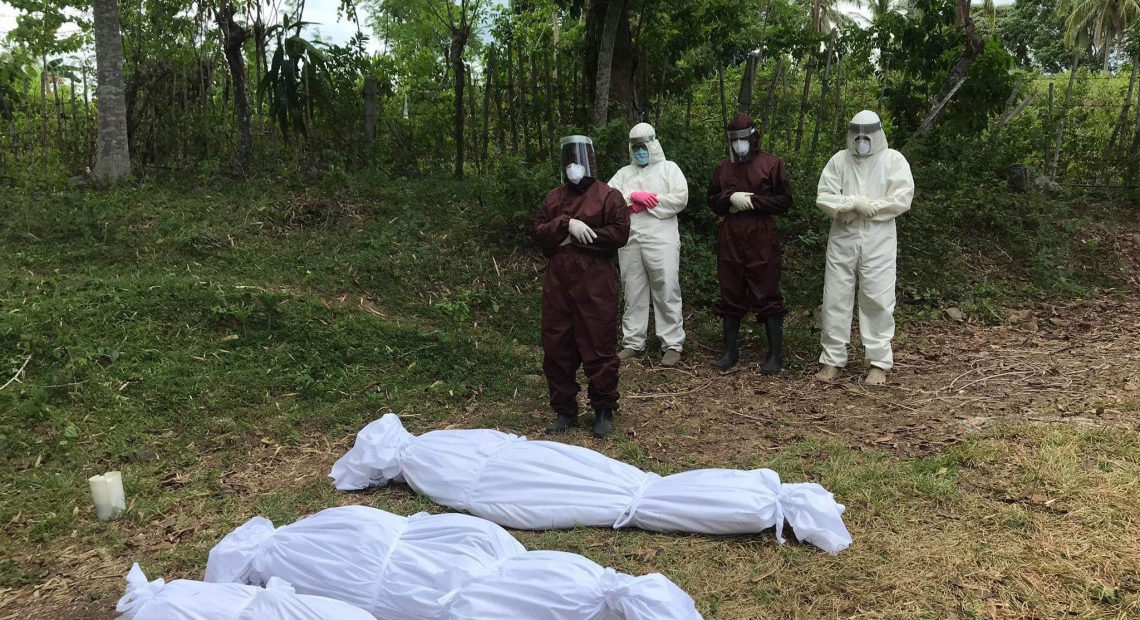COVID-19 has brought about unprecented global challenges, including to the respect of cultural and religious traditions – among them, a safe and dignified burial for those who lost their lives during the pandemic. A webinar titled “COVID-19 and Islamic Burials: Safeguarding the dignity of the dead” took place on 17 June 2020 with the ICRC’s support, to provide much-needed clarity on the topic.
Co-organized with the Bangsamoro Autonomous Region in Muslim Mindanao (BARMM) and the Center for Integrative and Development Studies (CIDS) of the University of the Philippines, the webinar gathered 65 participants to learn about the relevant perspectives of forensic science and Islamic teaching, and to assess challenges faced by frontline death-care workers, religious personnel and community members in handling dead bodies in a dignified manner. The participants – health officials and workers, religious experts, academics and humanitarians – sought to identify the main challenges and make health and policy recommendations toward dignified burials of Muslim COVID-19 victims.
Webinar video recording by the UP CIDS-Islamic Studies Program
The BARMM is increasingly cognizant of the challenges linked to burials of Muslims. “As a community, we should reach out to religious scholars to educate us on how burial is done under the ongoing circumstances. More than anything, we should preserve their dignity as humans and as Muslims,” said BARMM chief minister Ahod B. Ebrahim Al Haj, as he opened the webinar, calling for a continuing and evolving “conversation based on Islam, medicine, and actual experience of people working on the ground.”
In the first session, forensic specialist Alex Starkie gave an overview of ICRC activities globally and in the Philippines, where the organization has been engaging with medico-legal actors, providing technical advice, training and material support toward safe handling of mortal remains of COVID-19 victims. She highlighted the “importance of including the grieving families in the decision-making as far as possible,” and of educating the communities on the risks of the virus and on the measures that must be put in place for the safety of the wider community.

The second presenter, professor Dr. Abdulhadi T. Daguit from the National Commission on Muslim Filipinos (NCMF) and lecturer at the Institute of Islamic Studies of the University of the Philippines, explained that under Islamic law, obligations on the burial of a deceased person include the ritual washing of the body, shrouding it in pieces of cloth, and performing a funeral prayer.
Due to the contamination risk posed by COVID-19 for a certain time after death, families and people handling human remains must strictly adhere to safety measures.
This process was explained step-by-step in the third presentation, through the personal experience of Sheikh Mahir Gustaham in handling the burial services for Muslim COVID-19 victims. With a selected team of religious and technical personnel, Sheikh Mahir was tasked by the local health office in Zamboanga City in Mindanao to perform the religious burials. He explained that dry purification (see below photo) was performed, after which the remains were placed in an infection-control body bag, and then several layers of cloth (‘shrouding’) were wrapped outside of the body bag.

PHOTO: Sheikh Mahir Gustaham/ICRC
The funeral prayer was spoken either in the open or inside the health facility, with respect to physical distancing measures, before lowering the body into the grave or kabr. Finally, the religious leader and body handlers retreated to a designated area for PPE removal and decontamination/hygiene protocols. After Sheikh Mahir stressed how the safety of all those involved in the process depends on the quality and quantity of the PPE and COVID-19 testing, the BARMM health officials committed to promptly address the issue.
As part of its COVID-19 response in the Philippines, the ICRC conducted an infection prevention and control training to death-care providers, including to Sheikh Mahir and four other Islamic scholars in Zamboanga City, and to over 300 detention officers managing COVID-19 isolation facilities in Metro Manila. In its role as a neutral and impartial humanitarian organization, the ICRC has engaged with the parties to the armed conflict to remind them of their obligations to IHL, in particular the provisions most relevant to the COVID-19 pandemic.
For family members and people handling human remains, posters raising awareness on safe and dignified burials with respect to Muslim traditions have been translated into Filipino, posted on social media and distributed to local authorities and health offices in Mindanao.
Continuing to work with religious stakeholders and academic circles at both national and regional levels to address remaining challenges in relation to COVID-19 and management of the dead, the ICRC is preparing a similar webinar – this time on Christian funerary practices and COVID-19.
“Everyone must be treated with respect and religious and cultural practices must be acknowledged wherever possible, within the constraints of public health advice,” said Ms Starkie.

